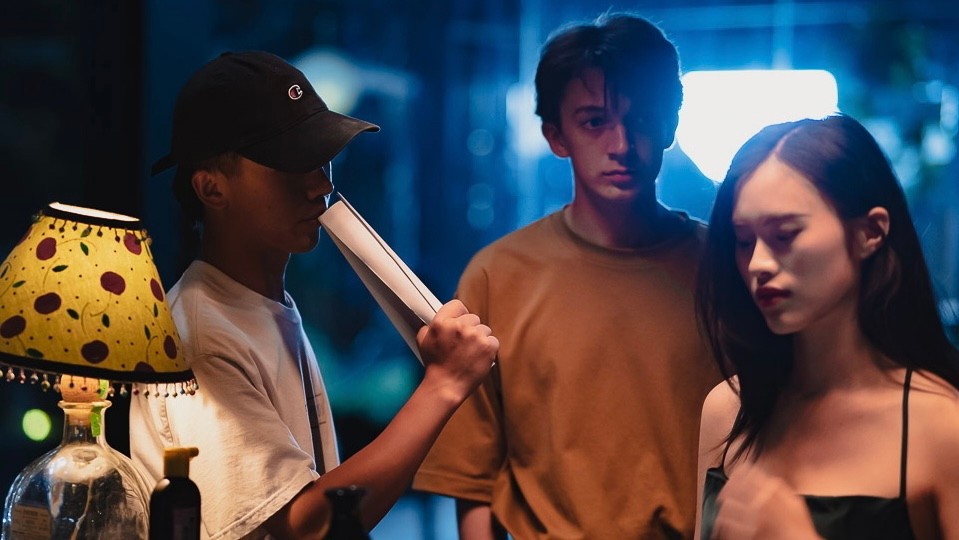

Today we’d like to introduce you to Zuyou Liu.
Hi Zuyou, thanks for joining us today. We’d love for you to start by introducing yourself.
If I had to trace my love affair with movies as a screenwriter, I guess it would be The Lord of the Rings that I saw when I was in my late teens. I had never seen a movie with such a grand story, a multitude of characters, a thousand different scenes, and beautiful costumes, and because of that, I began to understand that movies were what I wanted to do in the future. Ten years ago, I thought the foundation of a movie was the script, those words that make up every word behind the movie, so I started writing on my own scripts, stories, poems, anything I could. Even though my writing skills were improving, I hadn’t gotten into systematic script writing at that point.
Five years ago, a TV series called Prison Break appeared in my life. After watching it, I realized that the story is the basis of everything, but there is also a need to have a design for the picture, the thing we call cinematography. So, I kept watching movies to analyze the meaning behind each shot to understand the role of color in the character arc; after that, I accumulated a lot of film and television knowledge, looking forward to an opportunity and a place where I can show my skills, so I came to Los Angeles, the world’s film capital.
Now that I’m based in the magical land of Los Angeles, I’m fortunate to have made my first short film here, transforming a series of stories I’d previously treasured, thought up on the spur of the moment, and discussed with my friends into a full-fledged screenplay that’s gone on to make a splash at various film festivals. In addition to that, all the experiences I’ve gained have been the building blocks that have stood me in good stead and sustained me as I’ve traveled further and further.
Alright, so let’s dig a little deeper into the story – has it been an easy path overall, and if not, what were the challenges you’ve had to overcome?
There has never been a smooth road in this world, and if there was, what a boring “movie” it would be. Where I grew up, the word “movie” had nothing to do with making money. No one would think that making a movie was something to be proud of; instead, it was a bottomless pit of time, money, and ability that swallowed up any desire for overnight success. I was born in an educational family. My family are all teachers, they have no understanding of such unattainable and vague things as movies, of course they don’t want me to be unable to support myself after being a screenwriter. I won’t go into the twists and turns of how I argued with my family; it would be a soap opera of a teenage rebellion chasing his dream, even more boring. But in the end, they supported me to do what I wanted to do, to take the road that no one else had ever taken, and they said to me, “At least you tried it, and you don’t regret it.”
In fact, looking back now, most of those past struggles emerged from myself, the result of a great battle between the idealistic me and the realist me. Before I shot my first short film in Los Angeles, my script was a story I had conceived many years ago. But it was the story itself that became the story to be told today.
On my first day of high school, when I was learning about movies, my teacher told me that starting today, the movies you see will be nothing like they used to be. I really didn’t understand it at the time until I started writing my script, and it dawned on me, I call it the curse of knowledge. The story that I had conceived in my head and the script that I had written were two completely different things, but that’s what I got when I converted the story into words. In fact, it’s not just the whole writing a script thing; I get into this predicament that tortures me when I’m involved in a shoot or producing a movie. It doesn’t sound like much of a struggle, but it’s a feeling like when I’m watching a movie blindfolded at the cinema, I can feel it, I just cannot visualize it.
Thanks for sharing that. So, maybe next you can tell us a bit more about your work?
I call myself a Screenwriter. What I do and what I like to do is writing, writing in my notebook, writing on my computer, writing on toilet paper, turning an idea into a story, then into a script, and if possible, a movie. Everyone should have something to be proud of at a certain stage of their lives, and what I am most proud of at this stage is my short film and its screenplay, Begonia, which can be said to be the work of my heart in recent years, and which has been infused with my childish yet persistent artistic pursuits, and even though there is still a gap between this and the ideal state of affairs, I have already tried my best to reach the standard in my mind, and my own satisfaction is not enough, it needed to be tested by others, so I sent the script to movie festivals. The script was not only selected by many major film festivals but also won many Best Screenplay awards. To me, that means it worked.
This story is based on a poem by an ancient Chinese female poet, Li Qingzhao, from the Song Dynasty, which depicts the poet’s own state of loneliness at home, drinking wine and watching the rain. I loved the mood of the poem when I read it, and it fits my pretentious yet delicate writing habits, so I’ve been conceptualizing and polishing the story. Under my pen, the story focuses on a woman who lives alone for years, whose husband gives her everything she wants materially but travels a lot, leaving her home alone. There is another unassuming character in this story, a servant in their home, a young boy, and the day the boy turns adult, under that roof, the sky rains, the wind ruffles the branches of the trees, and something goes wrong between these two.
The story is very simple, and it is this simplicity that I seek. In Chinese ink painting, there is a technique called “leaving space,” where the creator deliberately leaves a large blank space on the canvas, which on the one hand, allows the audience to focus on the main point of the painting, and on the other hand, leaves a lot of space for the audience to imagine. What I want to do and what I am doing is this way of writing, leaving imperceptible details in the script, leaving the story behind the story to the audience’s imagination, and these blank spaces are where I, as the creator, communicate with the audience.
Before we let you go, we’ve got to ask if you have any advice for those who are just starting out.
Humbly, the only advice I can give is advice on how to scriptwrite, story write, or even write. I grew up with writing, so I like to look for the connection between every word written and then apply my own thoughts to those words; that’s what I think of as writing; people are always writing for the sake of writing, rarely thinking about the power, volume, and vibrancy of the words. So, the first piece of advice is to write thinking not only about how to convey the story completely and accurately but also to think about the usage, relationship, and placement of each word.
Writing is a form of output, and output without input certainly doesn’t work. those who write need a large, varied, and strange constant stream of input into their minds. The second suggestion is to read, keep reading, keep inputting. Here, I recommend a science fiction novel in particular, called The Three-Body Problem by Liu Cixin, whether you’re a screenwriter or not. Of course, advice on how to sell your screenplay, how to build a social network, etc., is also needed, but I’m not an expert in those areas, so for my advice, just look at the above two.
Without being modest, it’s hard to be a success in the movie business, and there’s only a few that can make it. That’s something we all need to be aware of. However, my family’s words of caution are the ADVICE of this industry: “At least you tried it, and you don’t regret it”.
Contact Info:
- Instagram: lalala_lando

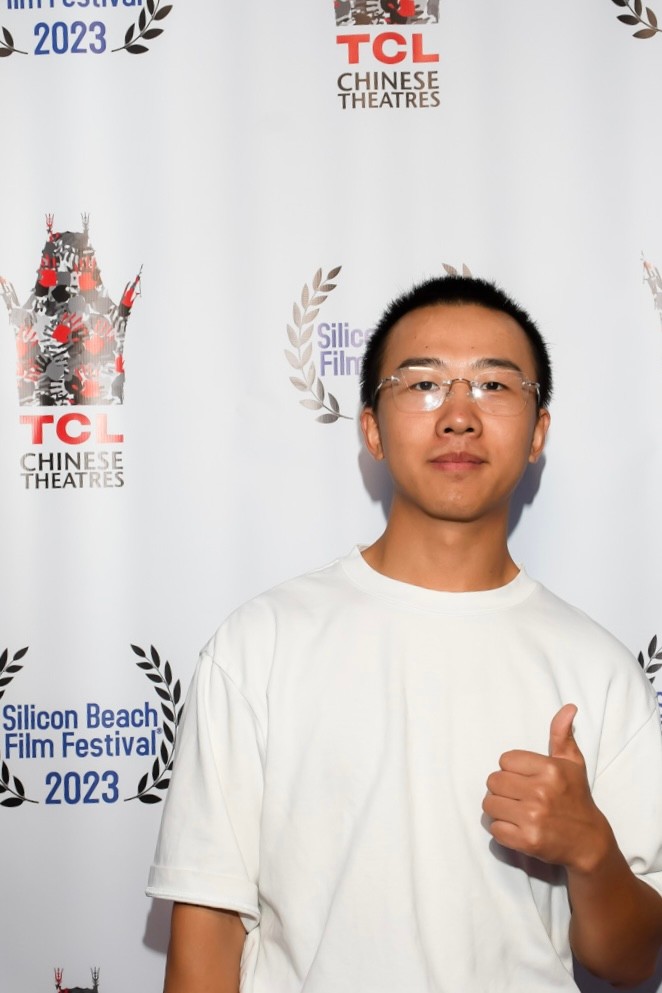
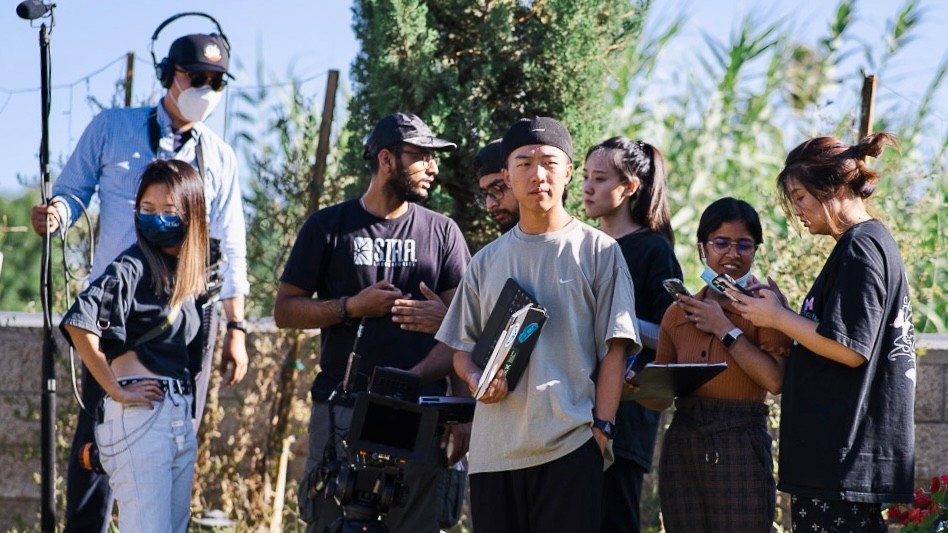
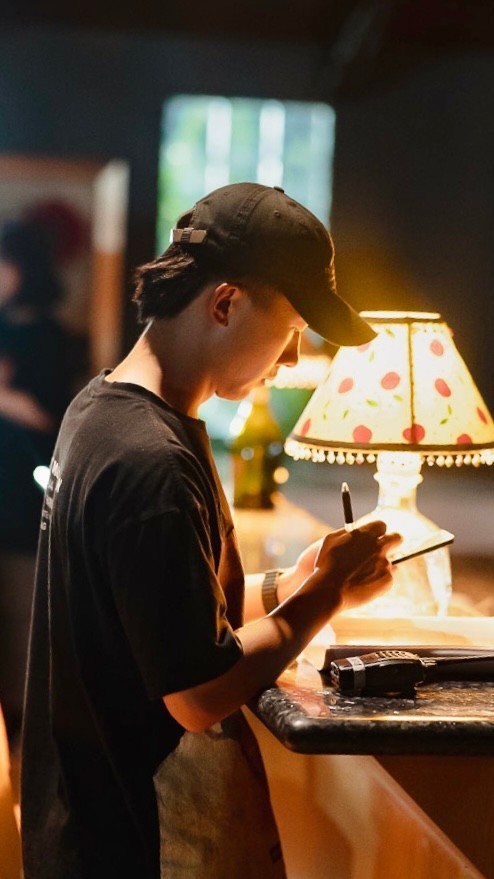

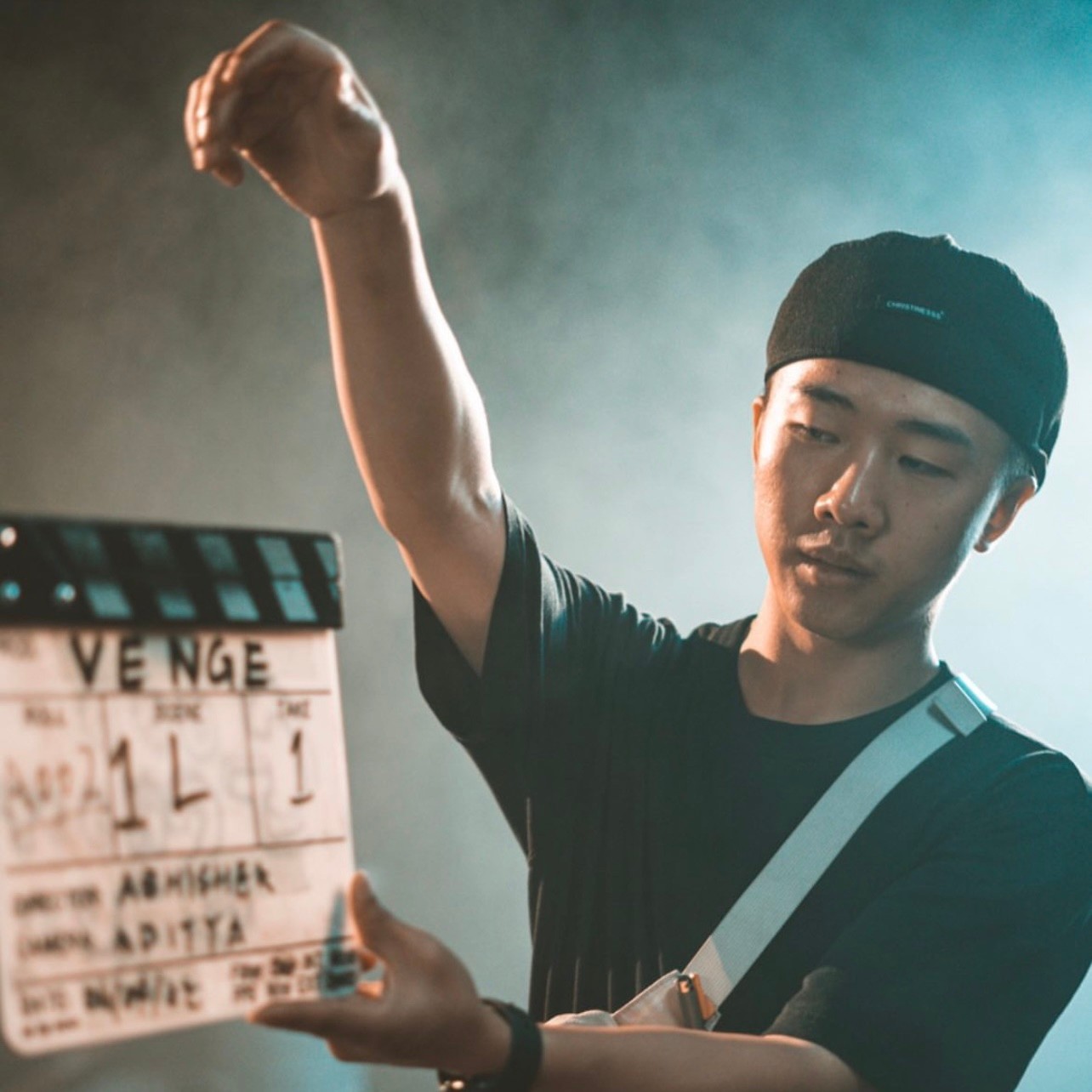
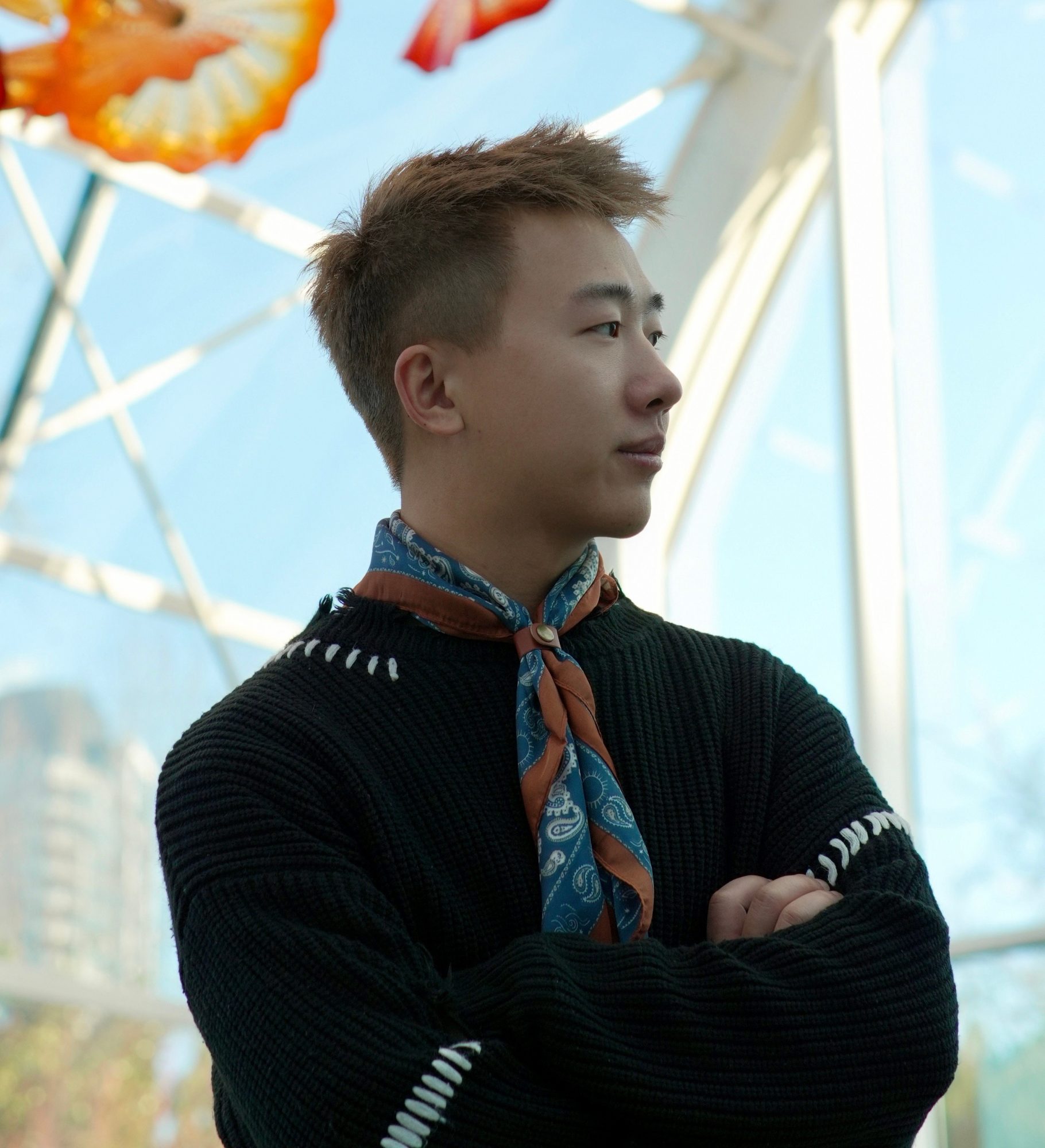
Image Credits
Trey Branch
Xinshu Cui














